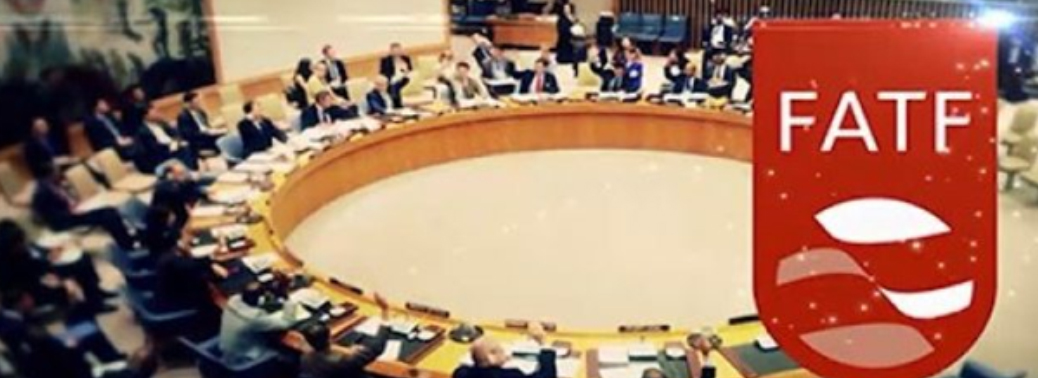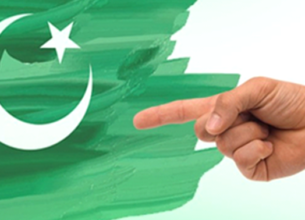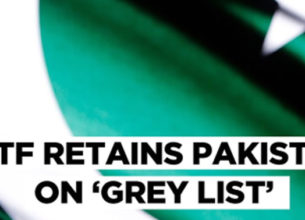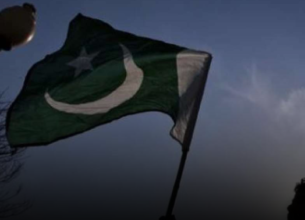FATF HAS PUT PAKISTAN IN THE ENHANCED EXPEDITED FOLLOW UP LIST
24, Aug 2019

Prelims level : International Relations & Organisations
Mains level : GS-II- Important International institutions, agencies and fora- their Structure, Mandate.
- Context: Financial Action Task Force affiliate Asia Pacific Group (APG) places Pakistan on Blacklist for failing to combat terrorism, money laundering and meeting the required global
- Background: At its meeting in Canberra, where discussions were held for over seven hours spread over two days, the APG found Pakistan non-compliant on 32 of the 40 ‘compliance parameters’ of terror financing and money laundering, the PTI report said. It also said that Pakistan had failed 10 out of the 11 ‘effectiveness paramete
FATF and APG:
- The FATF is an inter-governmental body that is now in its 30th year, working to “set standards and promote effective implementation of legal, regulatory and operational measures for combating money laundering, terrorist financing and other related threats to the integrity of the international financial system”.
- The FATF holds three Plenary meetings in the course of each of its 12-month rotating presidenc
- Pakistan has been under the FATF’s scanner since June 2018, when it was put on the greylist for terror financing and money laundering risks, after an assessment of its financial system and law enforcement mechan
- FATF and its partners such as the Asia Pacific Group (APG) review Pakistan’s processes, systems, and weaknesses on the basis of a standard matrix for anti-money laundering (AML) and combating the financing of terrorism (CFT) regime.
What Pakistan Agreed to Do?
- In June 2018, Pakistan gave a high-level political commitment to work with the FATF and APG to strengthen its AML/CFT regime, and to address its strategic counter-terrorism financing-related deficienci
- Pakistan and the FATF then agreed on the monitoring of 27 indicators under a 10-point action plan, with specific deadlin
- The understanding was that the successful implementation of the action plan, and its physical verification by the APG, would lead the FATF to move Pakistan out of the grey list. However, failure to comply by Pakistan could result in its blacklisting by September 2019.
- It would appear that Pakistan has now failed a key test at the APG. There is a distinct possibility, therefore, that a formal announcement of Pakistan’s blacklisting will be made at the FATF’s Paris Plenary in
Increasing Heat on Pakistan:
- In a statement, the FATF had said in February this year: “Given the limited progress on action plan items due in January 2019, the FATF urges Pakistan to swiftly complete its action plan, particularly those with timelines of May 2019.”
- At a meeting with the Joint Group of the APG in Guangzhou, China, in May, Pakistan had presented its progress on the 27 indicators. The Joint Group had informed Islamabad that its compliance on 18 of the 27 indicators was unsatisfactory, and asked it to do more to demonstrate strict action against eight terrorist groups, and in combating money launderi
India vs Pakistan at FATF:
- India is a voting member of both the FATF and the APG, and co-chair of the Joint Group, where it is represented by the Director General of India’s Financial Intelligence Unit (FIU).
- Pakistan had asked for India’s removal from the group, citing bias and motivated action, but that demand was rejected.
- India was not part of the group that had moved the resolution to greylist Pakistan last year in Paris. The movers were the US, UK, France, and Germany. China did not oppose the move then.
What Happens Now?
- For Pakistan to still be moved out of the greylist would require the votes of at least 15 of the FATF’s 36 voting membe At least three votes would be needed to block a move to blacklist Pakistan.
- The 36 countries include mostly developed Western nations, but also China, Hong Kong (China), Malaysia, and Turkey. Pakistan will likely make a diplomatic push to thwart blacklisting. It claims it has done enough on the action plan, banning Hafiz Saeed’s Jamaat-ud-Dawa and Masood Azhar’s Jaish-e-Mohammed, and taking over their properties.
- Pakistan is in a precarious financial situation. It faces an estimated annual loss of $10 billion if it stays in the greylist; if blacklisted, its already fragile economy will be dealt a powerful blow.
- Pakistan’s $6 billion loan agreement with the International Monetary Fund (IMF) could be threatened. The IMF has asked Pakistan to show commitment against money laundering and terror financing.










